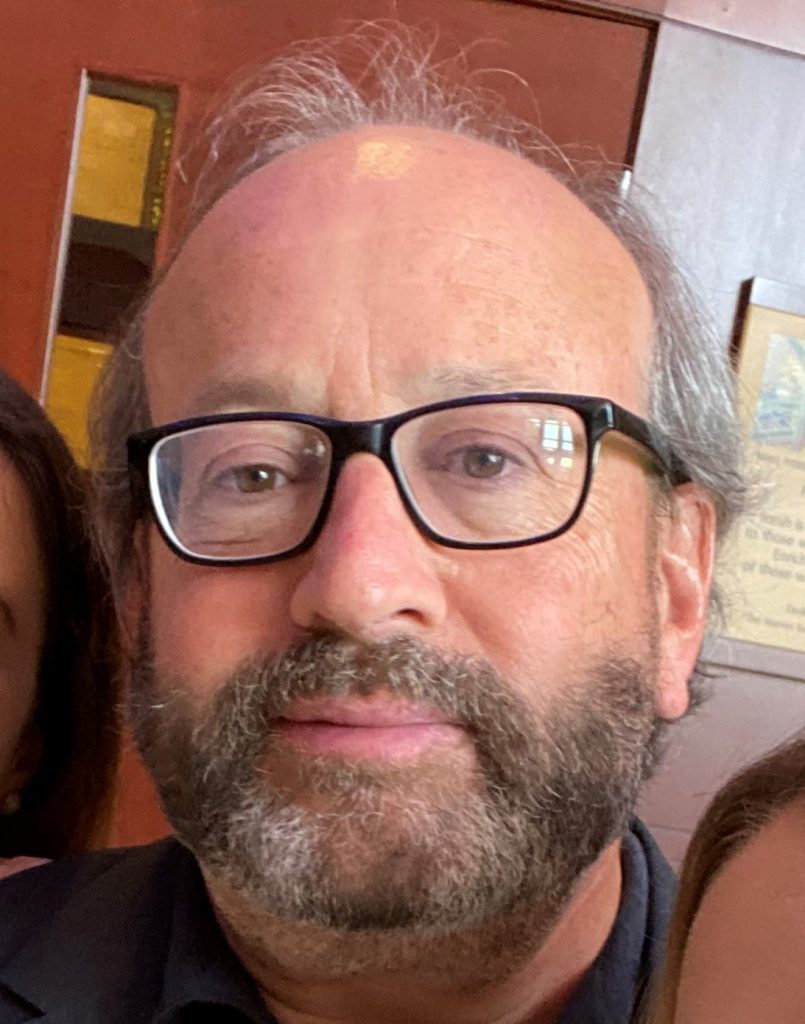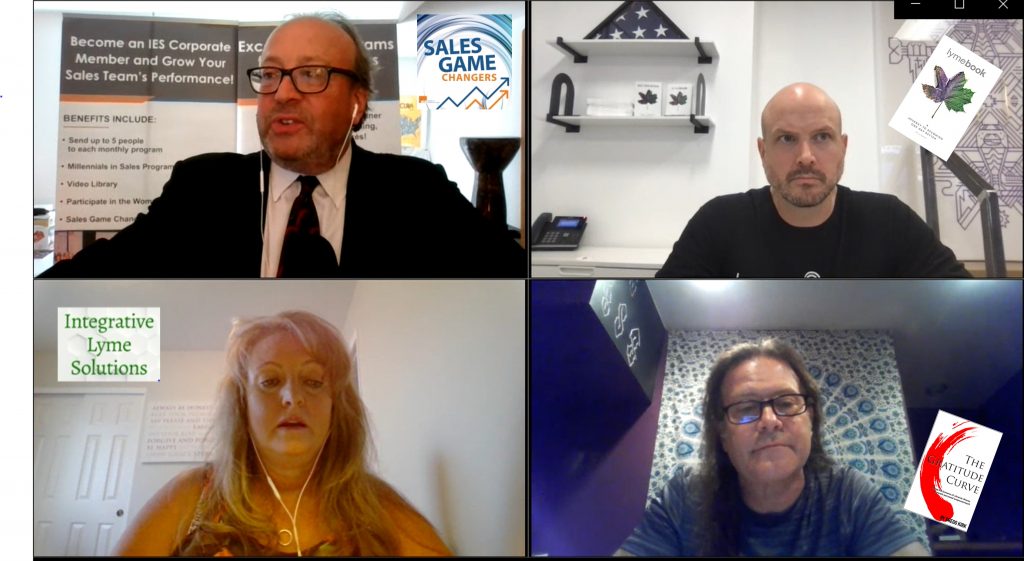Career and life lessons from survivors of chronic Lyme disease

By Fred Diamond
We all know that Lyme disease can cause major career disruption. But what if overcoming the disease can help you find your life’s purpose and mission?
I host The Sales Game Changers Podcast for sales professionals around the globe. I interview sales leaders about tactics, strategies, and ideas. Because someone in my life has chronic Lyme disease, I became interested in learning more about how survivors could transform their lives.
I recently hosted an episode called, “How These Leaders Discovered Their ‘Why’ After Conquering Chronic Illness and How It Applies to Sales.”
I sought out people to interview who had overcome their disease, or at least contained it, and found a more purposeful way to focus their careers and lives.
Great sales professionals are always looking for ways to find their purpose and mission so they can better serve their customers. I knew these lessons would resonate with my audience.
I’ve met some amazing leaders who have battled chronic Lyme and have shifted their career paths and life efforts to helping others suffering from chronic illness. I am inspired by them all.
You can listen to the episode or read the complete transcript. This episode was one of our most listened to ever.
Guests
The guests included:
- Gregg Kirk, a digital sales support marketing director who switched career paths after his decade-long struggle with Lyme disease. After reaching remission, he wrote the book “The Gratitude Curve” and founded a nonprofit Lyme patient fund called Ticked Off Foundation.
- Tanya Hoebel, vice-president of The Lyme Center in Chico, California, as well as the co-host of the Integrated Lyme Solution podcast.
- And JP Davitt, founder of Lymefriends and the author of “LYME BOOK: A Journey to Becoming One Day Better.” After overcoming chronic illness, he’s been focused on helping others make one day better.
All three have found their life’s purpose in helping others who are struggling with Lyme disease.
The shift to recovery
I asked when the shift to recovery took place and then how did this define their mission.
Gregg Kirk said, “The shift started when I was at my worst, I was at the point where I wanted to die. It was one of these weird situations where I wanted to die but I kept hanging around. Then I started looking inward. Why am I still here and why have I gone through this? Is this some kind of weird karma thing? Did I deserve this? Did I kill someone in a past life? Why am I going through all this mental and physical punishment? Then after I had that night, I let everything go. I just felt like my life had burnt to the ground and I started looking at my life in a different way.”
“I started thinking, maybe this disease is pointing me in a direction. Maybe I was going in the wrong direction in my life, as much as I liked my life at the time. I just started to let it happen. And the less I resisted, the more things started changing in very unexpected ways,” he said.
Tanya Hoebel said, “When I was nearing the end of my treatment, that was about 9 years into my illness, I could for the first time see the light at the end of the tunnel. I really had some faith that I was going to get better. I didn’t let it physically or emotionally ruin me because I continued to fight back. I thought, how can I possibly allow another human being go through even one day of what I’ve gone through over the last 9 years? My life changed at that moment.”
JP Davitt said, “When I was sick, I dreamt of a platform that would allow sick people to connect more easily with one another. I imagined a social platform that was more like online dating for wellness. I created an interactive health and wealth advisory practice, and my passion became my niche.”
Mission and meaning
I then asked them specifically what they created to further their mission and how it’s put more meaning into their life.
Tanya said, “I’m so thankful that I found another resource to end my suffering. It proved to me also, that someone on top of the world emotionally, financially, and at the top of their career like I was prior to Lyme can in one moment lose it all. I could have been one of those people homeless on the streets that you see roaming around and you often wonder why they’re there. That is what Lyme disease does physically, emotionally, and financially.”
“Because this positive person, me, contemplated suicide at one point, I thought I’ve got to do something, I’ve got to make a difference. That is when I became so involved in advocating for Lyme. I run a nonprofit organization, it’s called The Lyme Center, it’s based out of Chico, California and our mission is to educate and advocate for Lyme.”
“I’m also the co-founder of an incredible mentoring group on Facebook. This group has proved to be more than I ever dreamt it to be in such a short amount of time. We offer lots of treatment options and help educate them on so many different levels of Lyme because there are so many facets of it. I even managed to find time to cohost a weekly podcast, Integrative Lyme Solutions.”
JP said, “Lymefriends is a platform that acts like a dashboard for people with Lyme disease to go to, a one-stop-shop for all of the resources. I collect resources without worrying about any competition bringing everything together to help them finance sooner.”
“Whenever I was sick and having to streamline my efficiency with my body, it really taught me a lot about processes. Learning a lot about this process as I carried that over to healthcare and I was able to them form a goal to not just help with Lyme disease, but my goal really in the grand picture is to change the literacy and vocabulary of healthcare using technology.”
Gregg said, “There is a patient care problem. People have no money and they’re not getting diagnosed properly. When they finally are, they’re not getting the proper care.”
“I thought, if I had a billion dollars, what would I do? I thought I would create a healthcare system, like an insurance system that funded treatment because most of the treatments that worked for me were not covered by insurance, the herbal treatments and so forth. I thought, I don’t need to wait until I’m a billionaire, I can start a foundation, a nonprofit that people come to us, they get qualified through some documentation, and we give them monthly stipends. We’ve been able to help many people get the treatment they need.”
It was very inspiring to hear from some people who have overcome Lyme disease and have been able to give back in a big way and to give their lives more purpose.
The same can happen for you.
Fred Diamond is based in Fairfax, VA and can be contacted via Facebook. For a living, he runs the Institute for Excellence in Sales and hosts the Sales Game Changers Podcast. Someone close to him is a chronic Lyme survivor, which led to his Lyme-related advocacy.





















We invite you to comment on our Facebook page.
Visit LymeDisease.org Facebook Page